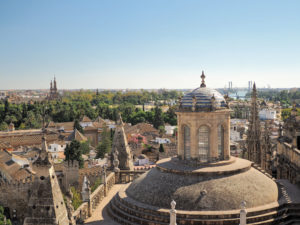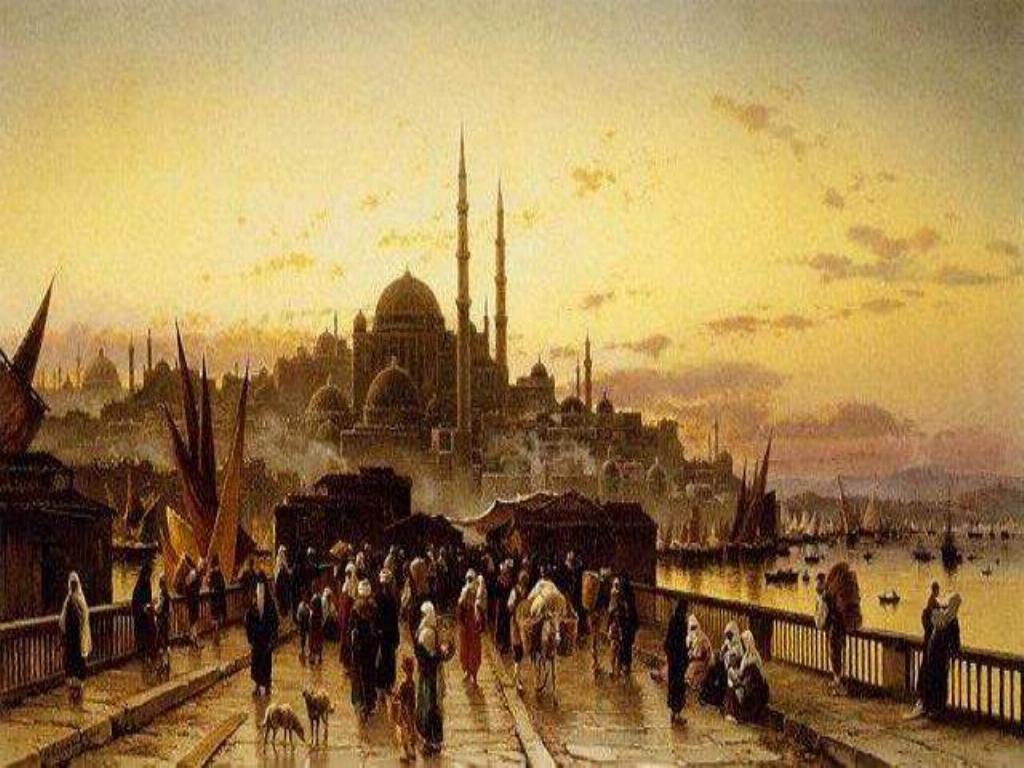Articles, Communications
The Influence of the Islamic Civilization in Europe
Article author: Alfonso Casani - FUNCI
Date of publication of the article: 24/01/2019
Year of publication: 2019
Article theme: Al-Andalus, Human Rights, Islam, Islamophobia.
The Spanish institution Casa Árabe launched, last January 14th, an interesting series of conferences under the title “Dialogue on open societies”, through which it intends to exchange ideas on the problems today’s societies are facing. Its purpose is to reverse the progress of populist trends in Europe and the radicalization of all kind of movements and ideologies (such as the rise of alt right movements, and of xenophobia and Islamophobia, the promotion of radical interpretations of Islam, etc.). In its opening session participated the Spanish Minister of Foreign Affairs, Josep Borrell, along with Susana Calvo Capilla, professor at the University Complutense of Madrid, and Emilio González Ferrín, professor at the University of Seville.
 Borrell’s communication reflected on our understanding of the different elements that conform the current European culture, reflecting on the role Islam has played in it. With this aim, he posed the following question, which structured his intervention:
Borrell’s communication reflected on our understanding of the different elements that conform the current European culture, reflecting on the role Islam has played in it. With this aim, he posed the following question, which structured his intervention:
“Is the Arab-Islamic world a constituent integral part of the historical European experience, or, on the other hand, it can be considered as a foreign and imposed element, and therefore, circumstantial and eccentric?”
Facing this question, Borrell highlighted the spirit of civilizational synthesis that characterized the culture of Al-Andalus and the historical and cultural footprint it left on Europe. An influence that hasn’t been always recognized, he remembered, reflecting on the European Constitution (never approved) he contributed to develop, and which only recognized the Jewish and Christian roots of the EU.
The importance of the previous initiatives
Looking at the resurface of this initiative, at the Islamic Culture Foundation (FUNCI) we want to express our satisfaction for the recovery of this debate and the recognition of the impact the Arab-Muslim culture had on Europe.

Likewise, we would like to remind that this recognition already took place in the Recommendation 1162 on “The Contribution of the Islamic Civilization to the European Culture”, issued by the Parliamentary Assembly of the European Council in September 19th, 1991. This initiative was promoted by FUNCI, in collaboration with the European Council, the Commission of the European Communities (today the European Union), and UNESCO, and counted with the support of the Spanish socialist group. The project took form through an international colloquium under the same name, previously launched in Paris, in the UNESCO and Institut du Monde Arabe’s headquarters, with the goal of informing the European Members of Parliament of the contribution of the Islamic civilization to the shaping of the European culture.
This recognition already took place in the Recommendation 1162 on “The Contribution of the Islamic Civilization to the European Culture”, issued by the Parliamentary Assembly of the European Council in September 19th, 1991. This initiative was promoted by FUNCI, in collaboration with the European Council, the Commission of the European Communities (today the European Union), and UNESCO, and counted with the support of the Spanish socialist group.
This influence is a consequence of the interconnection of peoples and cultures, through trade and the transmission of ideas, but also of the historical Muslim presence in Europe. It is possible to highlight, in this sense, the period of Al-Andalus, as a time of cultural splendor and coexistence among different communities. The efforts to translate and recover the classical knowledge, as well as the scientific developments that took place at the time, defined the development and knowledge of both the Iberian Peninsula and the rest of Europe.
From this perspective, we also need to take into account the blooming of relations among the different kingdoms that shaped the Peninsula throughout the eight centuries of existence of Al-Andalus, as well as the understanding of the frontiers as permeable and dynamic elements that contributed to the exchange of ideas and cultural elements.
The vast influences and relations this Andalusi period gathered went from Baghdad to Damascus, from Marrakech to Tripoli. This leads us to talk about an Islamic civilization, and not only Arab, which also included the Berbers that inhabited the North of Africa, and, of course, the native population of the Iberian Peninsula. It is important to remember, in this sense, that we cannot only speak of a foreign invasion, but of the conversion of the population of the Peninsula, that participated actively in the construction and splendor of Al-Andalus.
From this perspective, we also need to take into account the blooming of relations among the different kingdoms that shaped the Peninsula throughout the eight centuries of existence of Al-Andalus, as well as the understanding of the frontiers as permeable and dynamic elements that contributed to the exchange of ideas and cultural elements.
But we shouldn’t confine this influence only to the Andalusi period. Other empires and current States have also contributed to lay the foundations of the Muslim influence that we still find in Europe today. The best example is the Ottoman Empire, whose existence constitutes one more element of the European history and that, for more than 600 years, spread across the Middle East, the north of Africa, the Anatolia region and the east of Europe. As published years ago by the researcher Maria Todovora, its influence has contributed to the shaping of the Balkans, its food, language and even the everyday life of its population. The military power and cultural splendor this Empire experienced for several centuries shows a long history of interdependence and mutual enrichment with the rest of European kingdoms.

This historical approach shouldn’t make us forget the current influence that Muslim majority countries (or those with an Islamic tradition) continue to exert today through immigration and the blooming of cultural, political and business relations. This interaction transcends the MENA region and extends, of course, to the sometimes forgotten Muslim majority countries in Asia, such as Malaysia or Indonesia.
The Recommendation 1162
As stated by the Recommendation 1162 in its introduction:
- The Council of Europe has the statutory mission to safeguard and realise the spiritual and moral values which are the common heritage of its member states. Article 9 of the European Convention on Human Rights enshrines the right to freedom of thought, conscience and religion.
- Multicultural Europe is based on humanist and religious traditions, which are the source of its dedication to freedom and human rights, as recalled by the Assembly in Resolution 885 (1987) on the Jewish contribution to European culture.
- In a similar spirit, the Committee on Culture and Education held a colloquy in Paris in May 1991 on the contribution of the Islamic civilisation to European culture. The colloquy was organised in collaboration with the Western Institute for Islamic Culture (Madrid) and in association with Unesco.
- The colloquy showed that, in addition to Christianity and Judaism, Islam in its different forms has over the centuries had an influence on European civilisation and everyday life, and not only in countries with a Muslim population such as Turkey. The new Europe as well is becoming increasingly subject to influences from Islam, not only through the regions of predominantly Islamic culture such as Albania or some southern republics of the USSR, but also by immigration from the wider Islamic world.
Click here to read the complete Recommendation 1162.
An essential lesson
Despite being glad for the reopening of this debate on the influence of the Islamic civilization in Europe, we can’t help to notice that its previous recognition, that of 1991, has already been forgotten. Today, more than ever, at a moment of rise of Islamophobia and far right movements in the West, we need to make an effort to remember these initiatives, so that they remain present in our memories. They should become the foundations of our understanding of the European culture.
Today, more than ever, at a moment of rise of Islamophobia and far right movements in the West, we need to make an effort to remember these initiatives, so that they remain present in our memories. They should become the foundations of our understanding of the European culture.
And, nonetheless, and in spite of this assertion, we should not consider it a finite or obsolete debate. This exercise of knowledge should remain alive and have a continuation that allows it to deepen in its content, and to raise a necessary awareness among the population, so that the new generations can know the important influence that Islam had (and continues to have) on the historical and current Europe.


